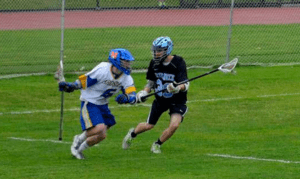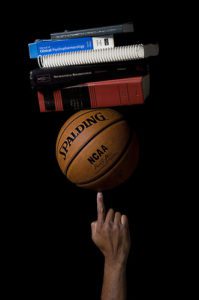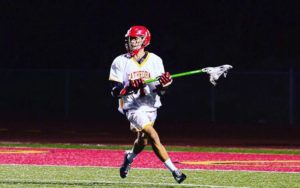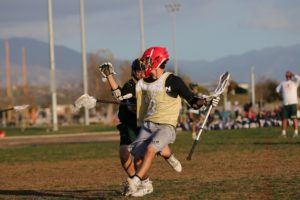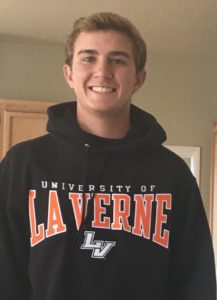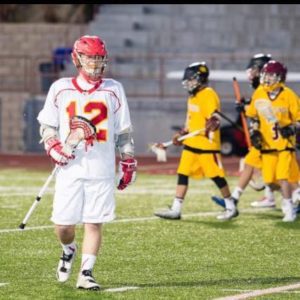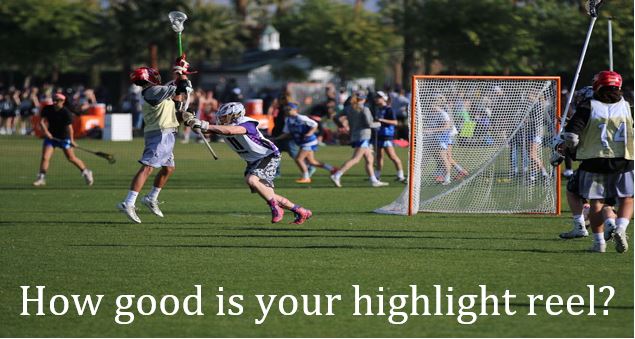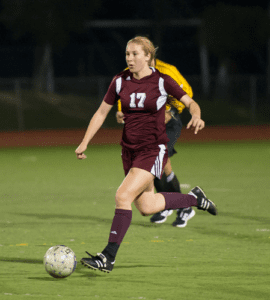We would like to congratulate Jack Pharies on his commitment to Centre College! Here are Jack’s recruiting story and interview after his commitment. Good luck as a Colonel!
1. Please share your recruiting story and status
I was actively recruited by over 20 colleges to play lacrosse. I narrowed down my choices to 3 colleges by the beginning of the summer before my senior year, and I committed to a college in July before my senior year.
2. What school are you going to, and why did you choose them?
I chose Centre College, which competes at the NCAA Division III level in the Southern Athletic Association. Centre is a national liberal arts college located in Danville, Kentucky. It was founded in 1819, has a national reputation for the quality of its academics, and is the number 1 school in the nation of any size for its travel abroad programs. I realized from the beginning that I would not make a living playing lacrosse, so my main focus has been choosing a college I would want to attend even if I did not play lacrosse. I have been interested in Centre from the beginning because of its size, the relationship between the faculty and students, and its travel abroad opportunities. Centre is among many schools that do not actively recruit in California. I contacted Centre through Sportsforce, and luckily the coach liked my video and asked me to campus. I already had offers from other colleges by the time I visited Centre, but I was just blown away by Coach Sharbaugh and Centre. Everything seemed to fit perfectly with what I wanted. The academics are great, the campus is beautiful, and the lacrosse coach is terrific and has a clear vision for the program and my role in realizing that vision.
4. How did SportsForce help in the process?
Sportsforce played a critical role in my recruiting journey. The best way to put it is that Sportsforce allowed me to control the recruiting process rather than the recruiting process controlling me. Without Sportsforce, I would have to rely on being seen at a showcase as my primary recruiting tool. While showcases are important, and I was recruited by coaches who saw me at showcases, it limits the universe of potential colleges to those that attend particular showcases. Sportsforce allowed me to introduce myself to the colleges I wanted to attend, not just the ones that happened to be at this weekend’s showcase. I could target a school, use Sportsforce as a way to get noticed by the coach, and then drive the recruiting process from there. It also allowed me to get ahead of the recruiting cycle so that, at each school that gave me an offer, I was one of the first offers they gave to players in my class. This proved to be an unexpected benefit because nothing makes a coach want a player more than knowing that a competing school wants that same player. This gave me a big advantage in recruiting because it put me in the driver’s seat. Not only did Sportsforce give me the tools to control my own destiny, it guided me every step of the way. From producing my initial video to the first e-mail campaign, to campus visits, and ultimately to making my commitment, Coach Hadlock and Sportsforce have advised me, supported me, and encouraged me.
4. What advice would you give to other players and parents with the recruiting process?
First, recruiting begins with grades. One of the first question every college coach asked me was my GPA and test scores. To keep your options open, you need to keep the grades up and do well on standardized tests.
Second, choose a college that you would want to attend even if you couldn’t play lacrosse. After all, every player is only one injury away from becoming a spectator.
Third, get to know the coach and the lacrosse program well and make sure you share the same goals. Find out how the coach recruits – is he selective in who he recruits or does he recruit huge classes and let the Freshman fight it out when fall ball starts. What is the lacrosse team’s reputation on campus – both among other athletes and the student body at large? Do the coach and the athletic department support your academic goals? Does the team have an academic adviser who travels with the team? Will the coach support your academic goals even if they require an absence from some training (such as for study abroad if that’s important to you).
Fourth, do an overnight visit. It is important to meet the team, see what it’s really like on campus, and understand the issues the current players face.
5. How excited are you on your future in college?
It is the perfect school and team for me. The academic environment, with small class sizes and an exclusive focus on undergraduate education, will challenge me and allow me to reach my goal of going to law school. The lacrosse team is always competitive in its conference and I’m going to travel throughout the South during conference play. I can’t wait to experience a different part of the country. In short, I am very excited. Go, Colonels!!
6. How much money do you anticipate your family saving in college expenses?
My school is NCAA Division III, so there are no athletic scholarships. However, I have been told that I will receive nearly $20,000 per year in academic scholarships.
7. Would you recommend SportsForce to any other student-athletes? Why?
I strongly recommend Sportsforce. It provides the tools to allow the player to control the recruiting process. Most players and parents go into the recruiting process with no idea of what it entails or what to expect. All of the coaches, however, do this every year and know exactly what they are doing. This necessarily puts players at a disadvantage. Sportsforce helps to not only level the playing field with their knowledge and guidance, but they help put the player in control of that process by giving the player the tools to target schools, get noticed by the coaches, and to get ahead of the recruiting cycle.
Over the last five years, SportsForce has helped over 1,000 student-athletes and families successfully navigate the college recruiting and athletic scholarship process while saving families on average $50,000 in college expenses.
